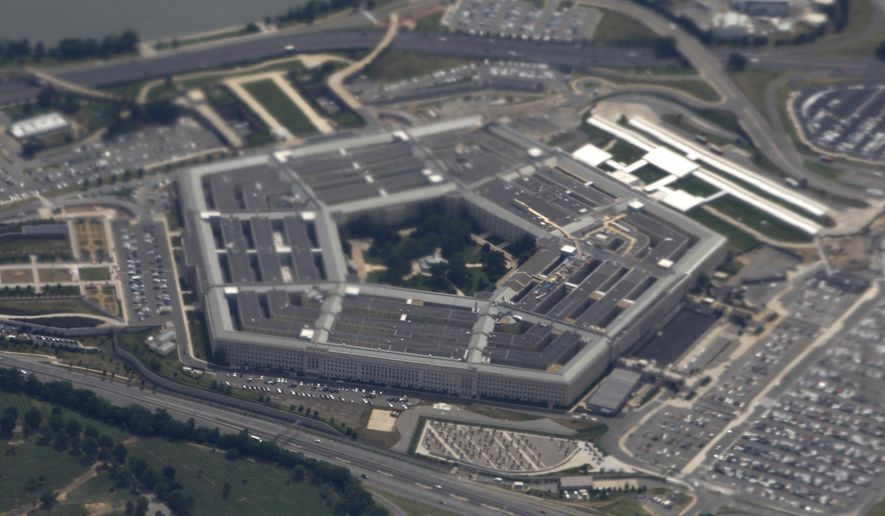A military appeals court has thrown out the sexual assault conviction of an airman after discovering that Air Force legal officers and victim advocates had conspired to fire a military judge who they thought was too lenient.
The episode “runs the risk of undermining the public’s confidence in the military justice process,” said a three-judge panel of the U.S. Air Force Court of Criminal Appeals.
The 3-0 opinion tells of an intricate plot to remove the judge as the general court-martial of Airman Frank M. Vargas grew near at Spangdahlem Air Base, Germany.
The military has been under intense pressure to wipe out sexual crimes by convicting offenders and providing a cadre of victim advocates. The Vargas case showed how influential such advocates can be in steering how a case is tried.
The maneuvering reached from Germany to the Air Force chief trial judge in Washington. According to his Air Force biography, the chief trial judge at the time was Col. Vance H. Spath, a key player in other notable court cases.
The judge, a lieutenant colonel, was fired on Nov. 25, 2014, and replaced by his superior, Col. Donald R. Eller Jr.
This, the appeals court said, was the fatal error amounting to “abuse of discretion” by Col. Eller, who should have recused himself. He should have had an outside judge rule on a defense motion that the judge’s firing amounted to unlawful command influence. Instead, Col. Eller had ruled there was none when he should have been a witness during court arguments.
The plot came to light when a whistleblower relayed the story to the fired judge and provided an affidavit and testimony.
The Washington Times has chronicled other military cases in which higher-ups encroached. For example, an appeals court ruled that a Marine Corps general interfered in a hazing trial by demanding that the accused be convicted. An appeals court ruled that Gen. James Amos, former Marine commandant, exercised unlawful command influence in the infamous corpse urination video in Afghanistan.
A jury of enlisted personnel and officers convicted Airman Vargas on nine charges of attempted sexual contact and assault. He was sentenced in 2015 to reduction in rank, dishonorable discharge and 29 years in prison.
The Air Force appeals decision said dissatisfaction with the original judge, who is identified only as “Lt Col CL,” began in June 2014. He dismissed sexual misconduct charges in another case because the prosecution withheld evidence. He also issued a light sentence in a second case.
A review of previous trials shows that “CL” is Lt. Col. Christopher Leavey.
After that, a number of Air Force legal officials began discussions on how to prevent the lieutenant colonel from presiding over other sexual misconduct cases.
The discussions involved judges, prosecutors and victim advocates at several commands. One victim advocate admonished at a meeting “not to discuss or mention this meeting as it could be improper” unlawful command influence, the appellate panel said.
The advocate “didn’t want defense or others to know there was a possible concerted effort to try and get Lt Col CL off the bench through ’loss of confidence,’” the court said.
The soon-to-be-fired judge engaged in discussions with Col. Eller and the Air Force’s chief trial judge, Col. Spath. Afterward, the lieutenant colonel was removed from four sexual misconduct cases.
The March 16 appeals decision concluded: “Appellant asserts that the military judge abused his discretion by failing to recuse himself in this case and that his failure to do so would cause a reasonable observer to question the fairness of Appellant’s trial. We agree.”
“The military judge was placed in the position of having to impartially determine whether he or his immediate supervisor, the Chief Trial Judge, had engaged in UCI or had been unlawfully influenced by the alleged removal effort,” the court said. “It is obvious that when the military judge initially ruled on the UCI motion, he knew that he and the Chief Trial Judge had been informed of the removal effort, at least by Lt Col CL, but the military judge chose not to inform the parties of his knowledge so that they could decide how to proceed.
“We find that the appearance of the court-martial’s impartiality was put into doubt by the military judge’s actions,” the appellate judges said.
The Vargas ruling was handed down by Col. Richard A. Mink, Col. John C. Johnson and Lt. Col. Naomi P. Dennis. They ordered a new hearing on unlawful command influence.
As for Col. Spath, he issued a historical decision in October in a Navy case. He ruled that the Navy’s top attorney, Vice Adm. James Crawford, showed unlawful command influence by intervening in the court-martial of Senior Chief Petty Officer Keith E. Barry, a Navy SEAL.
That, too, was a sexual abuse court-martial in which Adm. Crawford successfully headed off another admiral from reversing Chief Barry’s conviction.
The Barry case is now before the military’s highest court.
In November, Col. Spath found a Marine general in charge of war court defense guilty of contempt of court and sentenced him to 21 days of confinement.
• Rowan Scarborough can be reached at rscarborough@washingtontimes.com.




Please read our comment policy before commenting.